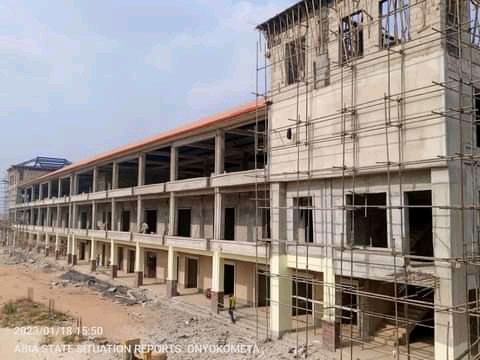The issue of sit-at-home in the southeast region of Nigeria was started by IPOB (Indigenous People of Biafra) around 2016, and it intensified years later. IPOB claims it is fighting for the freedom of Biafra from Nigeria. In this post, we’ll be looking at the sit-at-home declarative of IPOB, and its effects on the southeast economy.
To achieve the crux and main point of this post, we’ll start from the background.
Who are IPOB and What do they do?
IPOB, meaning Indigenous People of Biafra, claims to be a pressure and freedom fighting group, fighting for the freedom of Biafra from Nigeria. They have argued that the Biafran people are marginalized, and therefore, there is the need of freedom from Nigeria. It was established in 2013, and then headed by Nnamdi Kanu.
Nnamdi Kanu can be considered an idealist who presumes and asserts that Biafra will be a perfect state and more developed with fair justice than Nigeria. On starting the group in 2013, his argument and ideologies failed to gain much traction. It was the defeat of Goodluck Jonathan in 2015 that brought the needed traction.
He was able to do due to his consistency, and his use of internet radio for broadcast. On his platform, he broadcasted his idealistic pieces of information as well as a couple of propaganda. At a point, Nnamdi Kanu was arrested, and bailed. Then he was arrested again, and was held for a long time.
IPOB and Sit-at-Home
Sit-at-home declaration was started by IPOB in a small way on a single day. It was held every May 30 for the commemoration of Biafra’s independence in 1967, and the death of over a million Biafrans due to the Nigerian Civil War that followed. The people of the southeast states of Abia, Anambra, Ebonyi, Enugu, and Imo States gladly kept to it.
However, trouble started when Nnamdi Kanu was arrested, and IPOB made a declaration that southeast would be sitting at home every Monday to protest the arrest of Kanu. In a difficult economy like Nigeria, it was difficult for the people, and the directive wasn’t adhered to. A militant branch of the IPOB had to use fear and panic to make the people adhere to the sit-at-home directive.
This sit-at-home started in 2021.
On the other hand, IPOB had constantly denied their involvement in enforcement of the sit-at-home. This denial is a direct opposite to the support IPOB members show for the sit-at-home on social media platforms with threats as well. So, even though southeast people are threatened and forced by other southeast people, there were series of denials.
It was after 2023, with the increased calls for stoppage of the sit-at-home, especially by Governor Peter Mbah of Enugu State that the first set of successes were recorded. It is believed that with time, southeast will move past the trauma of sit-at-home and heal it’s economy.
The Sit-at-Home Declarative of IPOB and its Effects on the Southeast Economy
The sit-at-home had series of negative effects on the southeast region and economy. We’ll take a look at some of these effects.
1. It is estimated that the southeast economy lost over 200 billion naira in transactions, businesses, and funds, since the beginning of the sit-at-home directive in the southeast.
2. At a point, a week or two-weeks sit-at-home was declared, leading to severe hunger and lack of funds for the poor people in the region. Even the Monday sit-at-home was harsh on the people, and it deprived them of the needed funds to get food.
3. In some cases it led to a high number of deaths in the zone. One, it restricted movements on some days thereby affecting movement of emergency medical patients. Two, people were killed for disobeying the sit-at-home order. Three, sources of livelihoods were destroyed. This made southeast region largely unhabitable.
4. It increased the level of insecurity in the region by over 100% as a lot of criminals emerged in the guise of sit-at-home. It led to proliferation of weapons in the region; kidnapping, armed robbery, assassination, and other vices increased in the zone. This chased away businesses.
5. It affected core sectors of the region’s economy like trading, health, and education, especially education. The students and pupils in the zone weren’t learning at the same rate as those of other zones. A lot of students and pupils also missed their national examinations.
Conclusion
The sit-at-home directive didn’t really achieve what the IPOB leaders thought it would. Nnamdi Kanu wasn’t released, and the Nigerian Government didn’t show concern like they cared one of the most industrious region was sitting at home. Meanwhile, the southeast lost billions of naira, became unhabitable and unstable, and the security in the zone nosedived.
This is how we wrap it up on the sit-at-home declarative of IPOB and its effects on the southeast economy.
